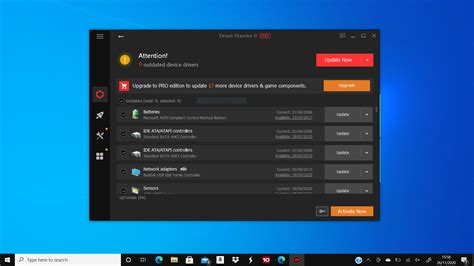Br data cloud
Author: b | 2025-04-23

BR DATA CLOUD GENERAL TERMS AND CONDITIONS These BR Data Cloud Terms and Conditions (together, the Agreement ) are entered into by SR Data Systems Co. Inc. d/b/a BR

Salesforce Data Cloud - Salesforce - BR
Time.Share your photos on Flickr, Google Photos, Instagram, or some other online photo sharing service? You’ve been putting your photos in the cloud.Your OneDrive and Google Drive/Docs documents are being stored for access and collaboration in the cloud.Services like RoboForm, LastPass, DropBox, Evernote, Notion, and others back up<strong>Back up</strong>, two words, is the act of making a backup.<br />See also: backup<br />(Click on the term for full definition.)" href=" data-mobile-support="0" data-gt-translate-attributes="[{"attribute":"data-cmtooltip", "format":"html"}]" tabindex="0" role="link">back up your data to their servers in the cloud, and they often allow you access to your data from just about anywhere you can connect to the internet.You get the idea… “the cloud” isn’t really anything new. You’ve been using it for some time already.As networkIn computing, a <strong>network</strong> is simply a collection of computers and digital devices continuously interconnected in such a way that they can exchange data.<br />(Click on the term for full definition.)" href=" data-mobile-support="0" data-gt-translate-attributes="[{"attribute":"data-cmtooltip", "format":"html"}]" tabindex="0" role="link">network speeds and capabilities have expanded, so has our use of helpful and powerful services out on the internet.Calling it “the cloud” just sounds sexier.Why cloud security mattersThere are two types of information you care about keeping safe when using online services:Information about you, such as your email address, passwords, account numbers, and the like.Information that you’re using the service to manage, such as your email, address book, documents, photos, and more. While some of this might be public, such as photos you choose to share, much of it may be private information you wouldn’t BR DATA CLOUD GENERAL TERMS AND CONDITIONS These BR Data Cloud Terms and Conditions (together, the Agreement ) are entered into by SR Data Systems Co. Inc. d/b/a BR These BR Data Cloud Terms and Conditions (together, the Agreement ) are entered into by SR Data Systems Co. Inc. d/b/a BR data ( BR Data or we ) and our BR Data Cloud Registered Customers ( You or Customer ). This Agreement sets forth the terms and conditions that govern BR Data Services placed under this Agreement. 1. DEFINITIONS Your information is safer than you think, although the cloud is not without risk.'The cloud' is the latest buzzword for internet-based services. It's important to understand a few things about cloud security.(Image: canva.com)This short question opens a veritable Pandora’s box of issues and considerations.I believe there’s a lot of misunderstanding about just what information safety means and how secure your data is and is not when you use cloud-based services.Of course, there’s also a lot of misunderstanding about what “cloud-based services” even means, so we’ll need to define that a little first.Keeping things safe in the cloudThe cloud is nothing more than the online services you’re using already.It’s your responsibility to secure your account with strong password hygiene, up-to-date account recovery information, and more.Choose reputable providers with a strong security track record. If you don’t trust them, don’t use them.Back up your data regardless. So many things can go wrong.Encrypt sensitive data you store online.I’ve talked about cloud computing before, but as a reminder, my definition is really pretty simple:The cloudThe cloud refers to to services and technologies, such as but not limited to online storage, provided online over the internet.<br />(Click on the term for full definition.)" href=" data-mobile-support="0" data-gt-translate-attributes="[{"attribute":"data-cmtooltip", "format":"html"}]" tabindex="0" role="link">cloud is nothing more than the internet, and cloud services are nothing more than services you access over the internet.Some examples:Outlook.com, Gmail, Yahoo mail, and the like. Particularly if you’re using their web interfaces, your email is in the cloud and has been for a very longComments
Time.Share your photos on Flickr, Google Photos, Instagram, or some other online photo sharing service? You’ve been putting your photos in the cloud.Your OneDrive and Google Drive/Docs documents are being stored for access and collaboration in the cloud.Services like RoboForm, LastPass, DropBox, Evernote, Notion, and others back up<strong>Back up</strong>, two words, is the act of making a backup.<br />See also: backup<br />(Click on the term for full definition.)" href=" data-mobile-support="0" data-gt-translate-attributes="[{"attribute":"data-cmtooltip", "format":"html"}]" tabindex="0" role="link">back up your data to their servers in the cloud, and they often allow you access to your data from just about anywhere you can connect to the internet.You get the idea… “the cloud” isn’t really anything new. You’ve been using it for some time already.As networkIn computing, a <strong>network</strong> is simply a collection of computers and digital devices continuously interconnected in such a way that they can exchange data.<br />(Click on the term for full definition.)" href=" data-mobile-support="0" data-gt-translate-attributes="[{"attribute":"data-cmtooltip", "format":"html"}]" tabindex="0" role="link">network speeds and capabilities have expanded, so has our use of helpful and powerful services out on the internet.Calling it “the cloud” just sounds sexier.Why cloud security mattersThere are two types of information you care about keeping safe when using online services:Information about you, such as your email address, passwords, account numbers, and the like.Information that you’re using the service to manage, such as your email, address book, documents, photos, and more. While some of this might be public, such as photos you choose to share, much of it may be private information you wouldn’t
2025-04-17Your information is safer than you think, although the cloud is not without risk.'The cloud' is the latest buzzword for internet-based services. It's important to understand a few things about cloud security.(Image: canva.com)This short question opens a veritable Pandora’s box of issues and considerations.I believe there’s a lot of misunderstanding about just what information safety means and how secure your data is and is not when you use cloud-based services.Of course, there’s also a lot of misunderstanding about what “cloud-based services” even means, so we’ll need to define that a little first.Keeping things safe in the cloudThe cloud is nothing more than the online services you’re using already.It’s your responsibility to secure your account with strong password hygiene, up-to-date account recovery information, and more.Choose reputable providers with a strong security track record. If you don’t trust them, don’t use them.Back up your data regardless. So many things can go wrong.Encrypt sensitive data you store online.I’ve talked about cloud computing before, but as a reminder, my definition is really pretty simple:The cloudThe cloud refers to to services and technologies, such as but not limited to online storage, provided online over the internet.<br />(Click on the term for full definition.)" href=" data-mobile-support="0" data-gt-translate-attributes="[{"attribute":"data-cmtooltip", "format":"html"}]" tabindex="0" role="link">cloud is nothing more than the internet, and cloud services are nothing more than services you access over the internet.Some examples:Outlook.com, Gmail, Yahoo mail, and the like. Particularly if you’re using their web interfaces, your email is in the cloud and has been for a very long
2025-04-10Include price indices, unemployment rates, and literacy rates, with types categorized as qualitative and quantitative data.<br/>Data serves as the basis for useful information extraction, and data-driven approaches enhance accuracy and effectiveness.<br/>The term data originates from the Latin word datum, meaning given, with the first English usage dating back to the 1640s and computer-related usage beginning in 1946.<br/><br/>2. Data Collection Methods and ProcessingData can be gathered from primary sources (original collection) or secondary sources (previously collected data) through various techniques including measurement, observation, surveys, and experiments.<br/>Field data refers to data collected in uncontrolled environments, while experimental data is gathered in controlled settings.<br/>Raw data typically undergoes cleaning to remove outliers and correct errors before analysis.<br/>Data analysis methodologies include triangulation and percolation, with methods encompassing calculation, reasoning, and visualization.<br/>Literature reviews and expert interviews are key components of data analysis, and computer simulations enhance understanding of phenomena.<br/><br/>3. Data Longevity, Accessibility, and Management ChallengesScientific research generates vast amounts of data, particularly in genomics and astronomy, but traditional storage methods (papers, books) are being replaced by digital formats (hard drives, discs).<br/>Digital storage devices risk becoming unreadable within a few decades, and surveys indicate that less than 20% of studies provide requested data after several years.<br/>Challenges in data management include missing data leading to biased results, ensuring data quality for accuracy and reliability, and addressing privacy concerns during collection and storage.<br/>Data overload complicates processing and analyzing large datasets, while integration issues arise from combining data from multiple sources.<br/><br/>4. Statistical Considerations and Data RepresentationStatistical considerations include effect size, sample size determination, replication of results, confidence intervals, and statistical significance to ensure robust analysis.<br/>Digital computers utilize a binary alphabet (0 and 1) for data representation, with familiar representations such as numbers and letters constructed from binary symbols.<br/>Metadata serves as a description of other data, with library catalogs exemplifying its role. Ancillary data is an earlier term for metadata, highlighting its descriptive function.<br/><br/>5. Applications of Data and Advances in Big DataData usage is expanding into various fields beyond traditional scientific domains, with applications in healthcare (patient data for treatment efficacy), marketing (consumer data for targeted advertising), education (performance data for curriculum improvements), social sciences (understanding societal trends), and environmental studies (monitoring climate change).<br/>Advances in computing have led to the emergence of big data, often at the petabyte scale, necessitating new analysis approaches as traditional methods struggle with large datasets.<br/>Data science utilizes machine learning and AI for efficient big data analysis,
2025-03-27Firefox Portable is a fully functional version of the Mozilla Firefox web browser designed to run without installation.Developed by PortableApps.com in collaboration with Mozilla, this portable version allows users to carry their favorite browser on a USB drive or cloud storage and run it on any Windows PC without leaving behind personal data. It retains all the features of the standard Firefox, including enhanced security, privacy settings, and add-on support, while ensuring portability and ease of use.Key FeaturesPortability – Runs from a USB stick or cloud storage without installation.Full Firefox Experience – Supports add-ons, themes, and developer tools.Privacy & Security – Includes tracking protection, private br... Read More » Why choose FileHorse?SecureSecurely download files from our super-fast and secure dedicated linux serversSafeThis product is 100% safe has been successfully scanned with more than 70 antivirus programsTrustedWe serve all files as they were released. We do not use bundlers or download-managers
2025-03-25Firefox Portable is a fully functional version of the Mozilla Firefox web browser designed to run without installation.Developed by PortableApps.com in collaboration with Mozilla, this portable version allows users to carry their favorite browser on a USB drive or cloud storage and run it on any Windows PC without leaving behind personal data. It retains all the features of the standard Firefox, including enhanced security, privacy settings, and add-on support, while ensuring portability and ease of use.Key FeaturesPortability – Runs from a USB stick or cloud storage without installation.Full Firefox Experience – Supports add-ons, themes, and developer tools.Privacy & Security – Includes tracking protection, private br... Read More » Why choose FileHorse?SecureSecurely download files from our super-fast and secure dedicated linux serversSafeThis product is 100% safe has been successfully scanned with more than 50 antivirus programsTrustedWe serve all files as they were released. We do not use bundlers or download-managers
2025-04-16